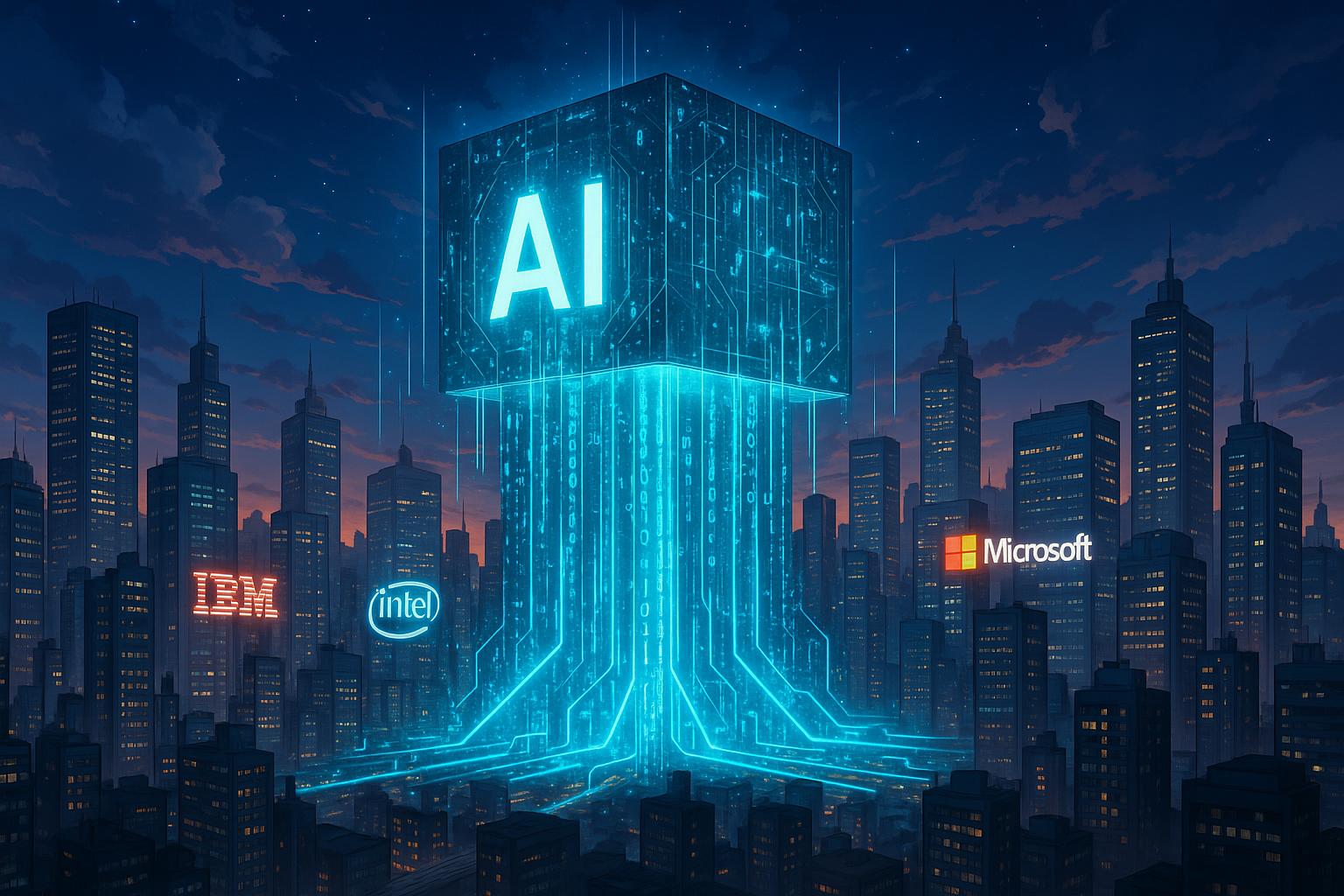The rapid evolution of artificial intelligence is transforming not only technological landscapes but also the very dynamics of global competition. In this high-stakes environment, massive investments flow toward AI projects that promise unprecedented advancements across multiple sectors, including healthcare, transportation, and data management. As industry players like Oracle and Nvidia plunge significant capital into supercomputing facilities, debates rage about the strategic implications and ethical concerns accompanying such unprecedented advancements.
Oracle's substantial commitment of $40 billion towards establishing a new Texas data centre reflects the urgency of the AI race. This facility, powered by Nvidia's advanced GB200 chips, is part of a larger initiative called the Stargate project, which aims to bolster America's prowess in artificial intelligence. By leasing computing power to OpenAI under a 15-year agreement, Oracle seeks not only to strengthen its market position but also to lessen OpenAI’s dependency on Microsoft, currently its largest backer. Analysts speculate that this cutting-edge centre could begin operations by mid-2026 and yield critical advancements in AI efficiency and capability.
Marc Andreessen, a prominent venture capitalist, heralds generative AI as a key driver of future productivity gains. His vision paints a picture of a world enriched by automation and enhanced decision-making capabilities. However, not all industry leaders share this unreserved optimism. Mark Cuban, speaking at the SXSW conference, cautions against over-reliance on AI. He argues that while AI serves as a powerful tool to amplify human capabilities, it should not replace essential human judgement in business decisions. This cautious perspective highlights the tension between ambition and prudence that characterises the current AI narrative.
The race to harness AI capabilities extends beyond traditional tech giants, as Microsoft and Nvidia push the boundaries of supercomputing. Their collaboration boasts significant advancements, including a remarkable speed increase of up to 40 times in AI computations via Microsoft Azure. This leap not only showcases the potential for AI in enhancing fields such as biotech and autonomous driving but also intensifies competition among cloud service providers, where giants like Amazon Web Services and Google Cloud are rapidly bolstering their own AI functionalities.
Alphabet's Google, for instance, is deepening its integration of AI into search functionalities, aiming to solidify its dominance as the primary conduit for online information. With tools like Google Gemini, the company is reimagining user interactions by combining text, images, and other multimedia to create enriched search experiences. These cutting-edge enhancements not only transform the user experience but also position Google to remain a critical player in a marketplace where knowledge and data management are king.
Yet, as the technological landscape evolves, so too do concerns about privacy and regulation. There remains a palpable unease around initiatives like Elon Musk's Grok chatbot, which government agencies are currently testing. Critics express trepidation about the potential ramifications of deploying advanced AI systems that may inadvertently expose sensitive information or operate beyond societal oversight. As governments explore frameworks to govern AI, balancing innovation against the need for ethical responsibility becomes an urgent challenge.
In this context of rapid growth and competing visions, the AI domain embodies a global arms race where optimism meets caution. Visionaries promote the expansive potential for technological advancement, while skeptics raise flags regarding safety, fairness, and the future of work. As we navigate this intricate terrain, one thing becomes clear: those who remain informed and adaptive will better position themselves to thrive amid inevitable changes.
As we witness the dawn of a new era characterised by innovation and disruption, it becomes increasingly essential to scrutinise the implications of AI development. By fostering a nuanced understanding of both its capabilities and limitations, stakeholders can formulate strategies that harness the power of artificial intelligence while safeguarding against its risks.
Reference Map:
- Paragraph 1 – [1], [2], [3]
- Paragraph 2 – [1], [4], [6]
- Paragraph 3 – [1], [3], [5]
- Paragraph 4 – [1], [2]
- Paragraph 5 – [1], [3]
- Paragraph 6 – [1], [6], [7]
- Paragraph 7 – [1], [2]
- Paragraph 8 – [1], [6]
Source: Noah Wire Services
